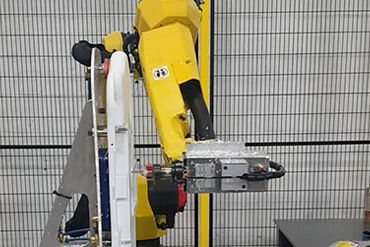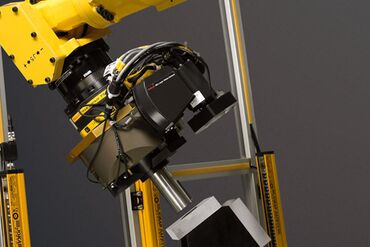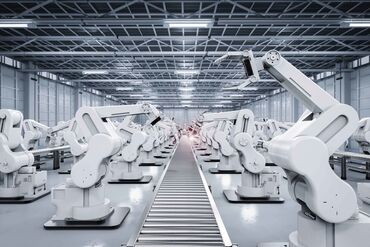Finding A Robot For A Small Business
Sep 24, 2013
Small businesses are those considered to have less than 100 employees and 10 robots. As technology continues to advance, small businesses are quickly realizing the affordability and benefit of automating their production line. This is bringing small businesses more flexibility and enabling a more versatile production line.

While the majority of robot users are the automotive, electronics, and consumer goods manufacturers, small businesses represent a growing segment of the robot market. Perhaps surprisingly, 95% of Motoman’s customers have five robots or less. Enterprises with fewer than 100 employees and less than 10 robots are considered “small businesses,” and they face unique challenges when investing in robots.
Since smaller companies typically have a smaller range of products and a more precise application, they don’t have as much opportunity to diversify their applications. But if the owners stay informed, they can understand the flexibility of their system and how the robot can be used to meet future needs as well as current needs. It is important for the company to have flexible automation that can be set up quickly and switched to another product line if necessary.
A challenge for a small business is the perceived need to hire a robot specialist who can reprogram the robot for new products when the time comes as well as fix technical issues. In reality, most robotic systems are extremely user-friendly. Robot manufacturers go to great lengths to make programming, operating, and maintaining robots simple. Also, robot integrators offer training so that all customers, regardless of business size, can perform maintenance and programming on their own.
Another challenge is the cost of the robot and necessary equipment. However, as prices decline, robots become affordable to small business owners. Leasing robots or buying refurbished robots are other alternatives to keep costs down. Further, robots eliminate wasted time, and commit fewer errors, which end up saving money.
The investment in robotics is a daunting number to some small enterprises, but the return on investment is usually less than two years. Reduced labor costs, decreased health insurance benefits, reduced consumables, and increased production speed are crucial.
Using robots for small lots is beneficial, which some small business owners don’t realize. Robots allow flexibility for small runs where the demand for production increases. Robots can handle multiple SKUs in case loading or up to 146 different parts in machine tending applications. Offline programming also allows the robots to continue running while the owner prepares for new jobs.
The most commonly used applications for small companies are case packaging/palletizing, material handling, welding, and assembly. Seasonal production also benefits from robotics, as their work cells have tooling that is only used when necessary.
So, as you can see, small businesses can benefit from robots. A great way to incorporate an industrial robot with less capital money is buying a completely refurbished refurbished robot. Robots.com specializes in refurbishing robots to work as good as new and are able to sell them for a reduced price. Our company provides support and training with every robot we sell, which is the perfect route for most small businesses. Call us today for more information or price quote at 877−762−6881 or contact representatives online.
Related Articles
You might be also interested in:

- Featured
Latest Advancements in Material Cutting Robotics
Read about the latest technological advancements in robotic material cutting.

- Featured
Emerging 3D Vision Technologies for Industrial Robots
Learn about the emerging 3D vision technology that businesses are using for industrial robot applications.

- Featured
Most Popular Industrial Robotic Applications for 2021 and Projections
Explore the most popular application trends of 2021 and what to expect in the future.
Let's talk!
Request your quick quote today.
